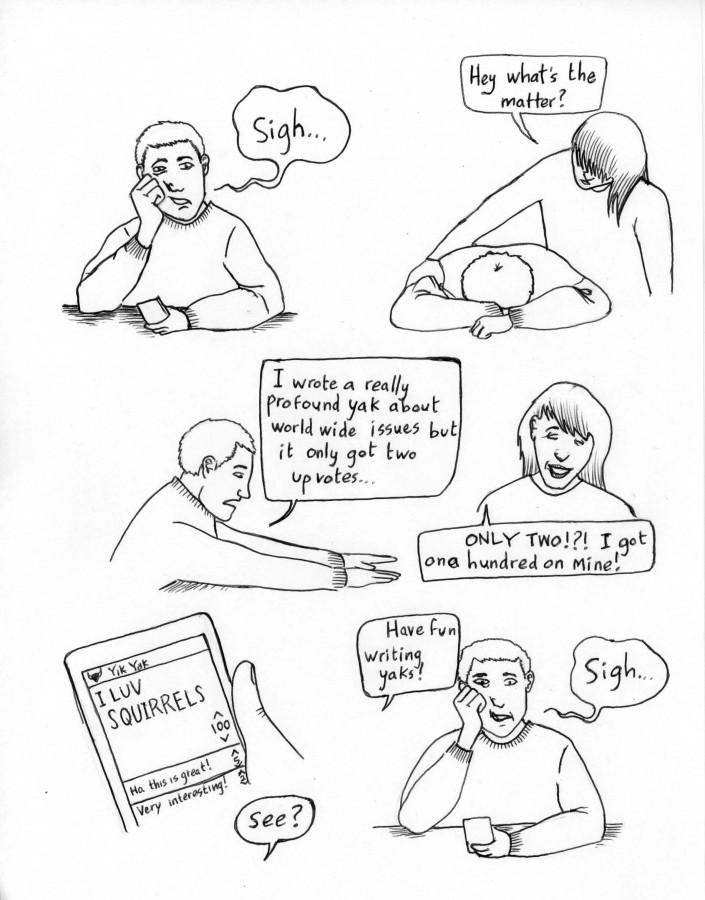The damn youths and their Yik Yakin’
November 16, 2014
If someone doesn’t have a Facebook, then it is assumed that they aren’t real. But with Yik Yak, an anonymous status posting app, some people are more themselves when no one knows who they actually are.
Social media is a necessity for students, colleagues, celebrities and practically anyone who wants to be connected with the world.
Employers base their first impressions off of your profile pages before they even ask for an interview and blind dates aren’t as obscure as they used to be.
Social media isn’t a true reflection of one’s identity but who they desire to depict themselves as.
We glorify our best traits and post them more to brag and make us appear cooler than we actually are; this is known as social media bragging.
People are more likely to post about their successes rather than their failures simply because they want to appear smarter, better looking, funnier and better than they are in real life, and you can’t blame them because we all do it.
The constant pressure to maintain a perfect online image is nearly as bad as the societal pressures that are put on people in real life.
With Yik Yak users can post without feeling judged since their identity isn’t tied down to what they post making it a much more authentic social media experience.
The idea of temporariness is also appealing to people since they are afraid of what they post online will be there for forever but with disposable content apps like Snapchat and Yik Yak people feel more free to be themselves which is a contributing factor to Yik Yak’s success.
The next time you post something, don’t obsess over how many likes you get or if your crush hasn’t commented on your profile picture. Your social media isn’t representative of who you actually are and you should embrace that. Instead of Instagramming the mountain you just climbed, live in the moment and do things for yourself and not to impress others on your profile pages.

